Little Joe

Reviews
Stephen Campbell
**_A fascinating premise and setup, but the execution is tedious_** >_The Capgras Delusion has been known since the turn of the century but has been treated as a curiosity, an anomaly. The standard explanation, which you find in most psychiatry textbooks, is a Freudian one and the idea is something like this: this young man, like most young people, when he was an infant, growing up, he had strong sexual attraction to his mother, the so-called "Freudian Oedipus complex". But then along comes a blow to the head, and suddenly and inexplicably these sexual urges come flaming to the surface, and_ _he finds himself sexually attracted to his mother. And he says, "_My God, if this is my mother how come I'm attracted to her? How come I'm aroused? This must be some other strange woman._"_ >_Now this is an ingenious explanation but it doesn't quite work, because I've seen a patient who has the same delusion about his pet dog. He'll look at his pet dog and say, "_Doctor, this is not Fifi. It looks just like Fifi, but in fact it's been replaced by another identical dog_". So how does a Freudian explanation account for this, unless you start talking about the inherent bestiality in all human beings or something like that? So what really causes the Capgras Delusion? Well, it turns out that when you look at an object, the message goes to the temporal lobes – to the visual centres in the temporal lobes. But seeing is a multi-level process. After you've recognised it, you also need to respond to the object emotionally. This is obvious when you look at a Picasso or a Rembrandt or any beautiful picture. Even when you look at, say, your mother's face, the appropriate emotional warmth has to be evoked. Or when you look at a lion you have to be afraid. And all of this is part of the visual process, but happening in a different part of the brain._ >_Now, what I've suggested is that what's going on in this patient is the message gets to the temporal lobe cortex, so the patient recognises his mother as being his mother and evokes the appropriate memories. But the message doesn't get to the amygdala, because the fibres going from the temporal cortex to the amygdala into the emotional centres are cut, as a result of the accident. Therefore, there is no emotion. There is no warmth. And he says, "_If this is really my mother why is it I'm not experiencing any emotions? There's something not quite right here. Maybe she is some other strange woman pretending to be my mother._"_ - V.S. Ramachandran "Secrets of the Mind"; _NOVA_, Ep. #28.13 (October 23, 2001) We live in an age where so many people work to live and live to work. We live in an age where Big Pharma has worryingly significant control over our lives via the drugs we're prescribed, drugs that so many people need just to make it through the day. We live in an age of genetic engineering and the commodification of well-being. And these are some of the weighty themes tackled in _Little Joe_, a clinically detached, aesthetically fascinating pseudo-horror with a killer premise, but questionable execution. Don't get me wrong, I thoroughly enjoyed the first hour or so, relishing the slow pace and methodical build, the gradual accumulation of detail, the anticipatory discomfort at seeing the protagonist pushed further and further into a corner. However, at around the 75 minute mark, I realised that this wasn't a slow build _to_ something; this slow build _was_ the something. And with that realisation, it didn't take long for tedium to settle in. I certainly admire the film's thematic complexity and stunning visual and aural design, but, in its totality, it's completely lifeless, the tone rigidly detached and dispassionate no matter what's happening on-screen, like a long sentence spoken in a gratingly monotone voice. It's one of those films I wish I had enjoyed a lot more than I did, but the fact is, I found the last act (which is not especially dissimilar to the previous acts) a real struggle to get through. In the near future, Alice (Emily Beecham) is a senior plant breeder at Planthouse Biotechnologies, a bioengineering lab that designs new types of flora. As the film begins, she and her colleague Chris (Ben Whishaw) have just unveiled their latest creation – a flower she's named Little Joe, which omits a scent that makes people happy on a biochemical level. Alice has genetically engineered Little Joe to be incapable of reproducing, which will enable Planthouse to maintain complete control when the flower is released to the public. Meanwhile, she must try to balance work with being a single mother to her young son Joe (a superb Kit Connor), after whom she named the flower. In an effort to bridge the two areas of her life, she smuggles a Little Joe out of the lab and gifts it to Joe. Meanwhile, at Planthouse, Bella (an excellent Kerry Fox), who has had mental health problems in the past, is concerned for her support dog, Bello, with whom she's exceptionally close and who comes to work with her each day, but who has started to show signs of aggression. Everyone tells Bella that it's no big deal, but she insists the dog is no longer her dog, that something has changed in him. She soon becomes concerned that this change has been brought about by exposure to Little Joe's pollen. Alice is dismissive until she starts to notice subtle, almost imperceptible, changes in Joe's behaviour as well. Could the pollen somehow be responsible, and if so, to what extent are people being altered, and to what end? Written by Jessica Hausner and Géraldine Bajard, and directed by Hausner (_Lourdes_; _Amour Fou_), Little Joe is kind of like an episode of Black Mirror, but focusing on biology rather than technology. Building a general tone of unease rather than relying on traditional horror beats (although there is one jump scare, and it's a good one), the film is built on a foundation of stoicism, and if you've seen any of Hausner's previous films, you'll recognise some of the techniques used in _Little Joe_; the stilted, declamatory performances that are a step or two divorced from reality (similar to, although not as idiosyncratic as, the staccato performances in Yorgos Lanthimos's early work); the vaguely defined character motivations; a prominent use of passivity, which sees characters to whom things happen; ambiguity regarding the central storyline – in the excellent _Lourdes_, this was manifested in the possibility that Christine (Sylvie Testud) may or may not have been miraculously healed, whereas here, it's whether or not people are _really_ changing, or is Alice suffering from Capgras Delusion? The most immediately obvious element of the film is the extraordinary sound design by Erik Mischijew (_Import/Export_; _Ich seh ich seh_; _Toni Erdmann_) and Matz Müller (the _Paradies_ trilogy; _The Field Guide to Evil_; _The Collini Case_). Before we see any images, we hear a high-pitched drone, which later becomes a motif that's used multiple times to suggest unease and danger. Important to the sound design is the score, or rather the lack of score. Hausner elected not to have original music composed for the film, but instead to use existing music written by Teiji Ito during the 1970s, which itself is deeply discordant, abrasive, and unsettling and which blends into the sound design. On top of all this, Mischijew and Müller frequently use the sounds of screeching metal, rustling, screams, and, bizarrely, dogs barking. It's all wonderfully chaotic, defamiliarising, and unnerving. The other aesthetic element that really pops is the cinematography, specifically how the camera moves. Director of photography Martin Gschlacht (_Ravanche_; _Im keller_; _Alpha_) often shots scenes as if he's capturing images for a diorama – long, slow pans from left to right and right to left that often start and finish with the characters not in the frame. Equally as interesting is that on two occasions, he shoots a conversation by very slowly tracking in between the participants – one character is screen-left, the other is screen-right, both on the edge of the frame, and Gschlacht tracks in between them to the point where they're no longer on screen. Thematically, there's a fair bit going on in _Little Joe_. Obviously, concerns pertaining to genetic engineering are front and centre, and in one respect, it's a cautionary pseudo-_Frankenstein_ tale, a story of how playing God can go wrong. Another theme is the work/home divide. Alice is more focused on her job than her home – one of the first things we hear Joe say to her is, "_all you can see are your flowers_" – and her decision to bring a Little Joe home is a rather ridiculous attempt to redress the balance; her attempt to (re)integrate the two areas of her life. The film also looks at what could be called "cognitive zombification" – those who Alice suspects are infected by Little Joe act just normal enough for people who don't know them to perceive nothing wrong, but just abnormal enough for the rest of us to see that something is not quite right; it's as if there's a slight phase differential between how they act and how everyone else acts. Symbolically, this represents the idea that if happiness could be made tangible and commodified, rather than such knowledge being used for the betterment of mankind, it would instead be a tool for control – a narcotic for addicts who don't even know they're addicted. Think about it – if you created something that could make people fundamentally happy, think of the power you'd wield if you took that thing away, and only you could restore it; "_sure, I'll let you experience that bliss again, all you have to do is everything I say_". In an age when happiness as an abstract concept is being distilled into the evermore tangible (think of people whose happiness rests almost entirely on getting likes on social media), _Little Joe_ posits a scenario where the abstract is made completely literal. However, it's also concerning the issue of people's happiness that we can see one of the film's biggest problems. Whilst the idea that most people would be willing to take fake happiness over real discontent is a compelling one (and almost certainly an accurate one), on more than one occasion, Hausner equates such happiness with the use of anti-depressants. There are multiple references to Bella not being the same since she started taking medication, and the film seems to say that the use of pharmaceuticals to get through the day is akin to people being somehow less than their "real" selves. That this is a naïve view hardly needs explaining; one need only mention people who suffer from depression or those with chronic pain – such people _cannot_ function without their medication, which they need as much as someone with diabetes needs insulin or someone with a heart condition needs nitroglycerin. So to suggest that they are somehow being zombified is not only inaccurate, it's dangerous, the kind of crap that Scientology and Tom Cruise yammer on about. On a slightly different point, I'm not sure that the depiction of Alice's difficulty in finding a balance between home and work, and the suggestion that she has only achieved professional success by neglecting her child, will go down very well with the tens of thousands of professional women who are also single mothers, and who have managed to climb the ladder of success and be there for their children. And, as I've already outlined, the film's pacing becomes a real issue in the last act, when you realise Hausner has little interest in building to anything even mildly resembling a traditional _dénouement_. _Little Joe_ has a lot going for it – an intriguing premise, a great cast, a gorgeous visual design, a superb aural design, a thematic complexity – but it all matters little when the narrative is so tediously self-important and plodding, with a message about pharmaceuticals that's well-intentioned and partially accurate, but also misguided at best and offensive at worst. More an existential thriller than the horror movie as which it's been marketed, I do hope the film opens doors for Hausner, who's clearly a talented filmmaker. But as an individual exercise, it just didn't work for me. Lacking the subtle ambiguity of _Lourdes_, the bombast of a straightforward horror, the esoteric coherence of a good satire, and the narrative drive of a thriller, _Little Joe_ kind of ends up somewhere awkwardly in between.
CinemaSerf
A fascinating concept - a firm determined to succeed at a flower fair work to create the ideal blossom. When two of their team - Emily Beecham and an almost robotic Ben Whishaw develop a flower that exudes a pollen that creates happiness; they are certain they are onto a winner. She even smuggles one home as a gift for her young son, and they christen it "Little Joe". À la "Jurassic Park" the plants are sterile so they cannot reproduce - well, that's the theory anyway but as Jeff Goldblum would have said "nature finds a way". Problem here is that the way chosen by the plants to perpetuate their species is so convoluted and ponderous that I'd long lost interest before this rather short feature got anywhere near the sharp end. Neither star makes much impact here - indeed it's really all about hair... her's is orange and his normally thick locks are out-tousled by Phénix Brossard. Kerry Fox has the only character that has any depth, otherwise it just looks and feels like a made for television movie.
Movie Recommendation
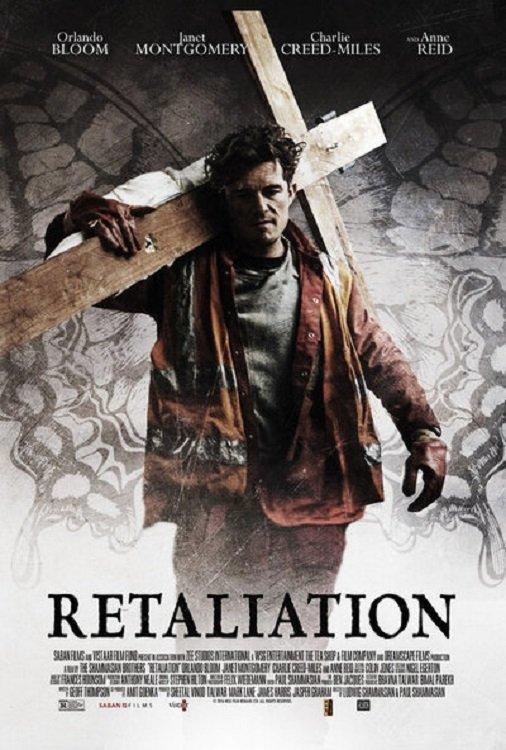 Romans2017-12-21Malky is a demolition worker whose life receives a seismic shock when, out drinking with friends at a local pub, he sees a disturbing figure from his past: the man he holds responsible for a traumatic childhood incident. Fueled by anger, Malky sets out on a path of vengeance—and discovers that no one can escape the consequences of their sins.More...
Romans2017-12-21Malky is a demolition worker whose life receives a seismic shock when, out drinking with friends at a local pub, he sees a disturbing figure from his past: the man he holds responsible for a traumatic childhood incident. Fueled by anger, Malky sets out on a path of vengeance—and discovers that no one can escape the consequences of their sins.More...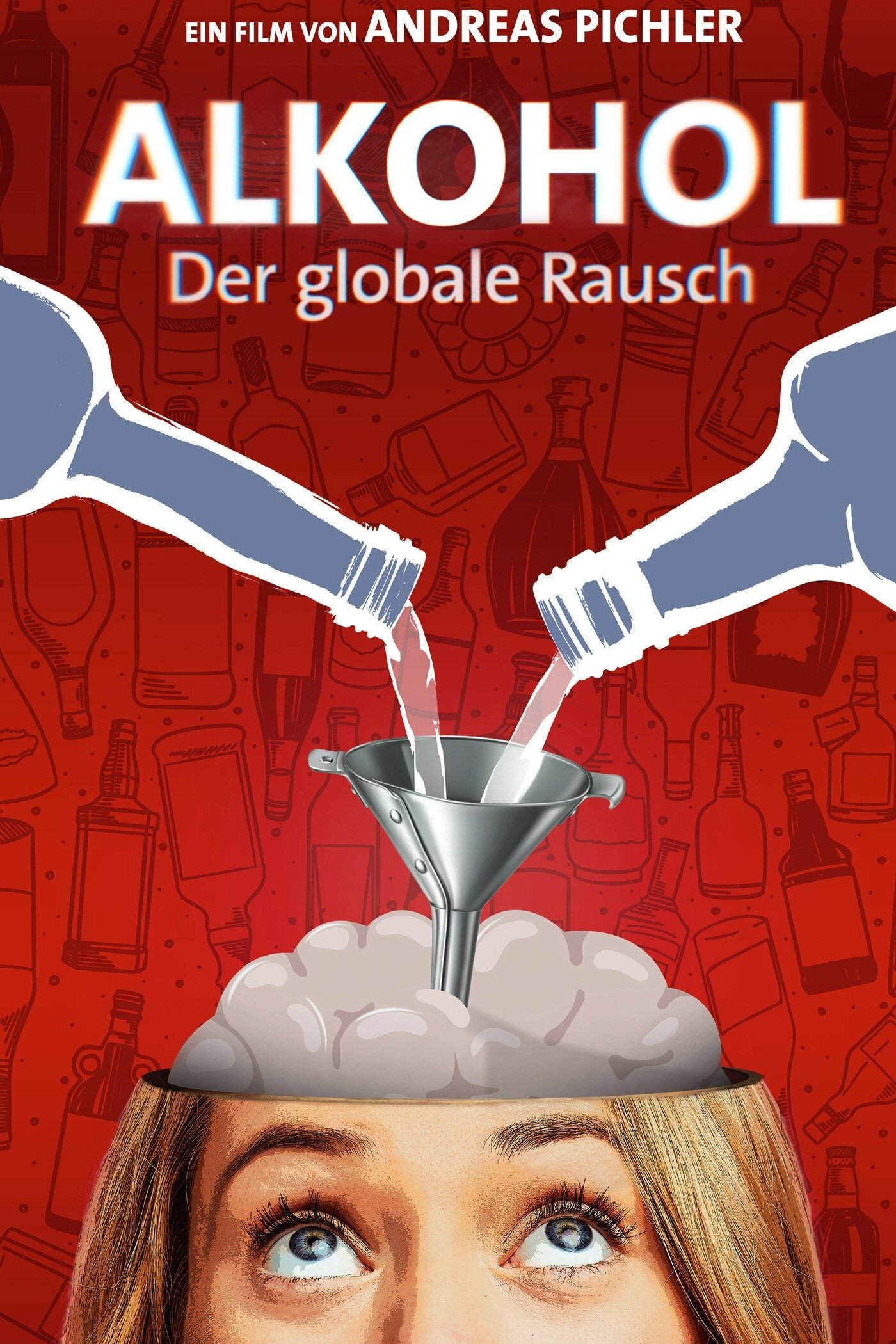 Alkohol2020-01-09Alcohol: No substance in the world seems so familiar to us and is so incredibly diverse in its effect. Alcohol is available everywhere and this particular molecule has the power to affect all 200 billion neurons of our human brain in completely different ways. But hardly anyone calls alcohol a drug despite its psychoactive and cell-destroying effect. Why do we tolerate the death of three million people every year? Have we turned a blind eye to the dangers and risks for thousands of years? What role does the powerful alcohol industry play with an annual turnover of 1.2 trillion euros in this on-going concealment? The author, who himself enjoys having a drink, looks into the question why we drink at all, what alcohol does to us and to what extent the alcohol industry influences society and politics.More...
Alkohol2020-01-09Alcohol: No substance in the world seems so familiar to us and is so incredibly diverse in its effect. Alcohol is available everywhere and this particular molecule has the power to affect all 200 billion neurons of our human brain in completely different ways. But hardly anyone calls alcohol a drug despite its psychoactive and cell-destroying effect. Why do we tolerate the death of three million people every year? Have we turned a blind eye to the dangers and risks for thousands of years? What role does the powerful alcohol industry play with an annual turnover of 1.2 trillion euros in this on-going concealment? The author, who himself enjoys having a drink, looks into the question why we drink at all, what alcohol does to us and to what extent the alcohol industry influences society and politics.More... Je ne sais pas si c'est tout le monde2019-10-23There is no descriptionMore...
Je ne sais pas si c'est tout le monde2019-10-23There is no descriptionMore... Weekend, Italian Style1965-12-27Manager Marletti goes to the sea to meet his wife Giuliana to spend the weekend with her and many friends. After three days Marletti comes back driving his car to Rome. So he can sleep, alone and happy, with silence around him.More...
Weekend, Italian Style1965-12-27Manager Marletti goes to the sea to meet his wife Giuliana to spend the weekend with her and many friends. After three days Marletti comes back driving his car to Rome. So he can sleep, alone and happy, with silence around him.More... The Audition2019-11-06Anna teaches violin at a music school, her husband is an instrument-maker. They have a 10-year-old son, Jonas. At school, Anna champions young Alexander, in whom she alone sees great talent. She devotes much energy and attention preparing him for the next stage exam to prove she was right. Soon Anna devotes more time to him than to Jonas, bringing the two boys into rivalry. At the same time her marriage is collapsing, she withdraws increasingly from her own family and starts an affair with her colleague Christian, who is encouraging her to join a quartet. When she fails during their joint concert, the pressure mounts. With Alexander now her vehicle, she drives him ever onwards and upwards. Come the day of the exam, events take a tragic turn...More...
The Audition2019-11-06Anna teaches violin at a music school, her husband is an instrument-maker. They have a 10-year-old son, Jonas. At school, Anna champions young Alexander, in whom she alone sees great talent. She devotes much energy and attention preparing him for the next stage exam to prove she was right. Soon Anna devotes more time to him than to Jonas, bringing the two boys into rivalry. At the same time her marriage is collapsing, she withdraws increasingly from her own family and starts an affair with her colleague Christian, who is encouraging her to join a quartet. When she fails during their joint concert, the pressure mounts. With Alexander now her vehicle, she drives him ever onwards and upwards. Come the day of the exam, events take a tragic turn...More... Il regno2020-06-26The king of a secret modern-time Medieval kingdom leaves his throne in inheritance to his son, who struggles to lead the kingdom in fight for its independence from the Italian state.More...
Il regno2020-06-26The king of a secret modern-time Medieval kingdom leaves his throne in inheritance to his son, who struggles to lead the kingdom in fight for its independence from the Italian state.More... Gundermann2018-08-23The real life story of East German singer and writer Gerhard Gundermann and his struggles with music, life as a coal miner and his dealings with the secret police (STASI) of the GDR.More...
Gundermann2018-08-23The real life story of East German singer and writer Gerhard Gundermann and his struggles with music, life as a coal miner and his dealings with the secret police (STASI) of the GDR.More...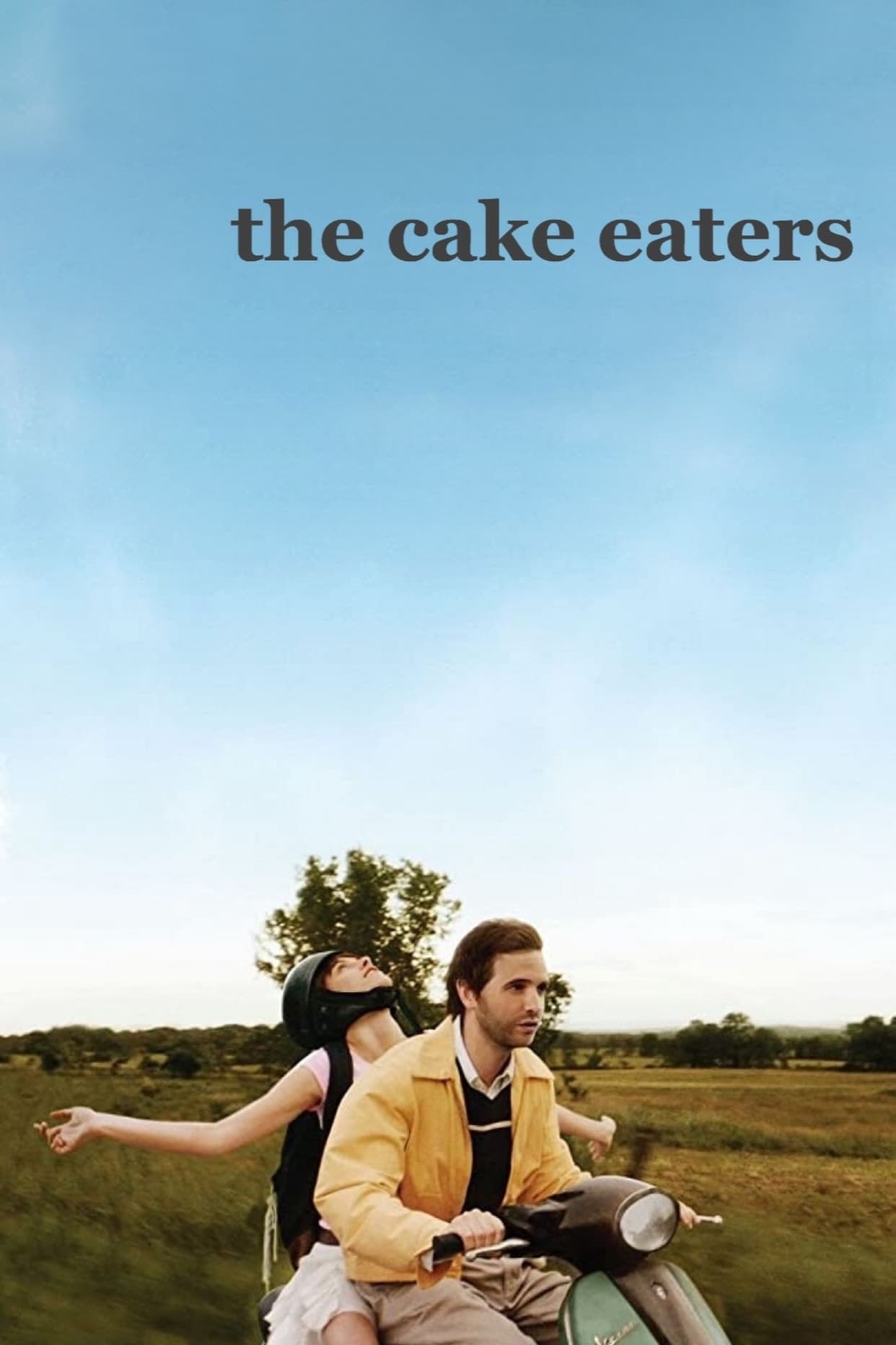 The Cake Eaters2007-04-29The death of the Kimbrough family matriarch affects the three male survivors of the clan. Widower Easy tries to reconnect with his old flame, Marg. Eldest son and struggling musician Guy moves back to town, feeling guilty that he missed the funeral. His brother, Beagle, who was his mother's caretaker, falls for Marg's granddaughter, Georgia, a chronically ill girl who fears her time is growing short.More...
The Cake Eaters2007-04-29The death of the Kimbrough family matriarch affects the three male survivors of the clan. Widower Easy tries to reconnect with his old flame, Marg. Eldest son and struggling musician Guy moves back to town, feeling guilty that he missed the funeral. His brother, Beagle, who was his mother's caretaker, falls for Marg's granddaughter, Georgia, a chronically ill girl who fears her time is growing short.More... Liverleaf2018-04-07The story follows Nozaki Haruka, a middle school student who transfers to a new school in a small town because of her father's work. Unfortunately, she becomes a victim of horrific bullying, but since the school will be closing in 2 months after graduation, no one is willing to help her.More...
Liverleaf2018-04-07The story follows Nozaki Haruka, a middle school student who transfers to a new school in a small town because of her father's work. Unfortunately, she becomes a victim of horrific bullying, but since the school will be closing in 2 months after graduation, no one is willing to help her.More...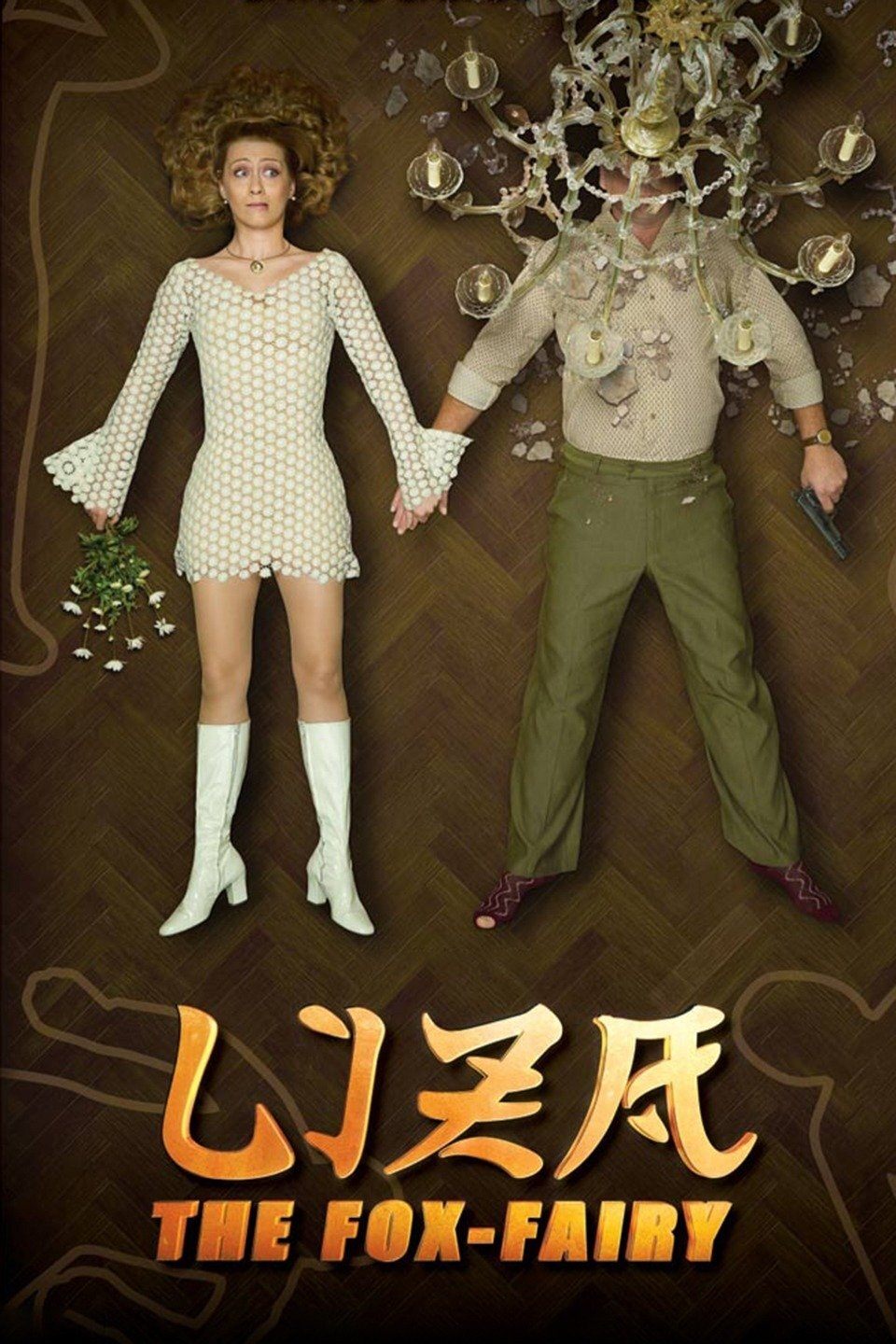 Liza, the Fox-Fairy2015-02-19Liza is a naïve, lonely 30-year-old nurse who wants to fall in love. Her only company is a long-dead Japanese pop star, who turns her into a fox-fairy out of jealousy. Now, every man who desires Liza shall die horribly. Can she overcome the curse?More...
Liza, the Fox-Fairy2015-02-19Liza is a naïve, lonely 30-year-old nurse who wants to fall in love. Her only company is a long-dead Japanese pop star, who turns her into a fox-fairy out of jealousy. Now, every man who desires Liza shall die horribly. Can she overcome the curse?More... Relic2020-07-03When elderly mother Edna inexplicably vanishes, her daughter rushes to the family's decaying home, finding clues of her increasing dementia scattered around the house in her absence.More...
Relic2020-07-03When elderly mother Edna inexplicably vanishes, her daughter rushes to the family's decaying home, finding clues of her increasing dementia scattered around the house in her absence.More...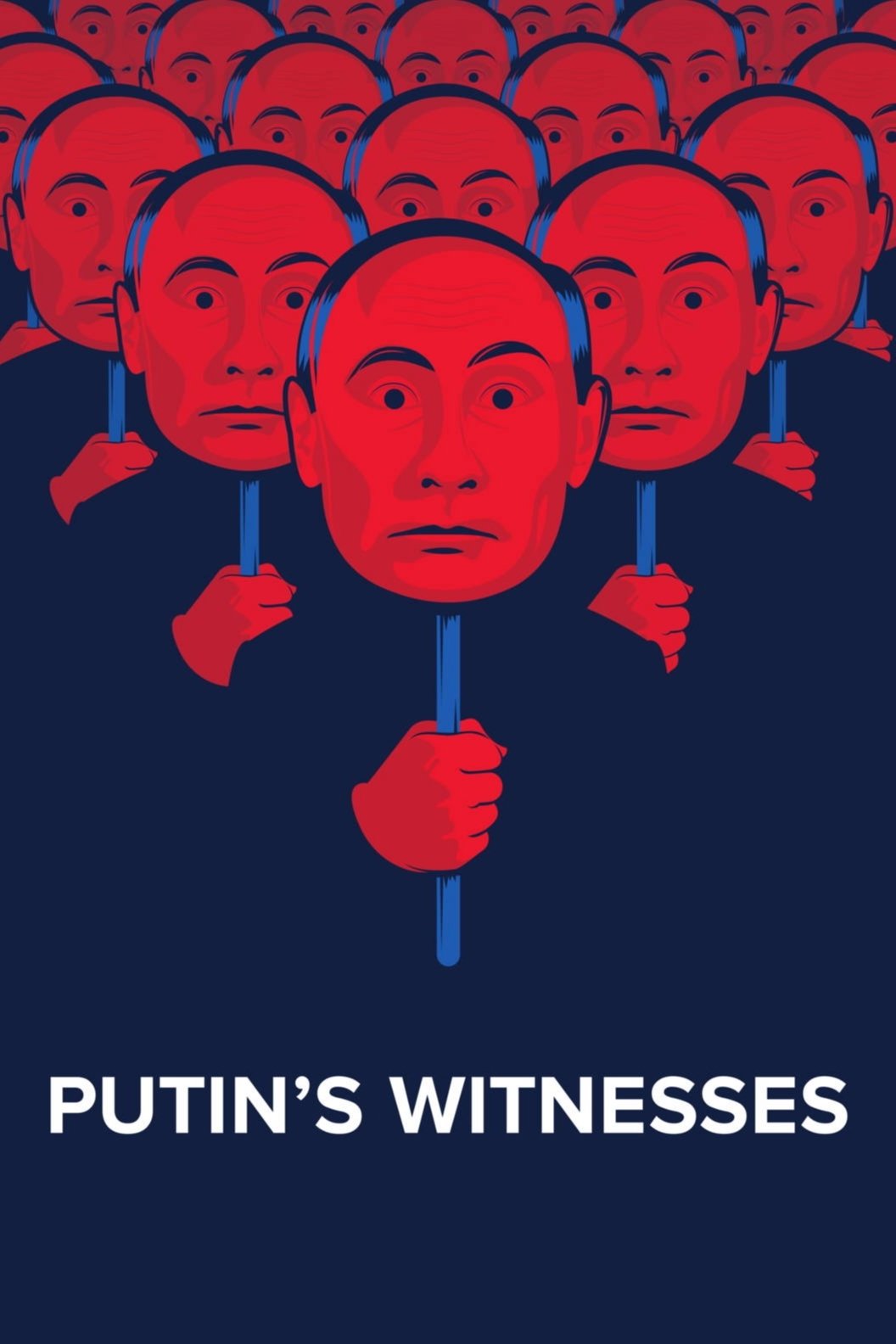 Putin's Witnesses2018-11-08Russian Federation, December 31, 1999. After President Boris Yeltsin's unexpected resignation, Prime Minister Vladimir Putin becomes acting president of the country. From that day and for a year, Vitaly Mansky's camera documented Putin's rise to power. The story of a privileged witness. The harsh explanation of the reason why politics is the art of possibility of achieving the best with the support of many, but also of giving the worst in return.More...
Putin's Witnesses2018-11-08Russian Federation, December 31, 1999. After President Boris Yeltsin's unexpected resignation, Prime Minister Vladimir Putin becomes acting president of the country. From that day and for a year, Vitaly Mansky's camera documented Putin's rise to power. The story of a privileged witness. The harsh explanation of the reason why politics is the art of possibility of achieving the best with the support of many, but also of giving the worst in return.More...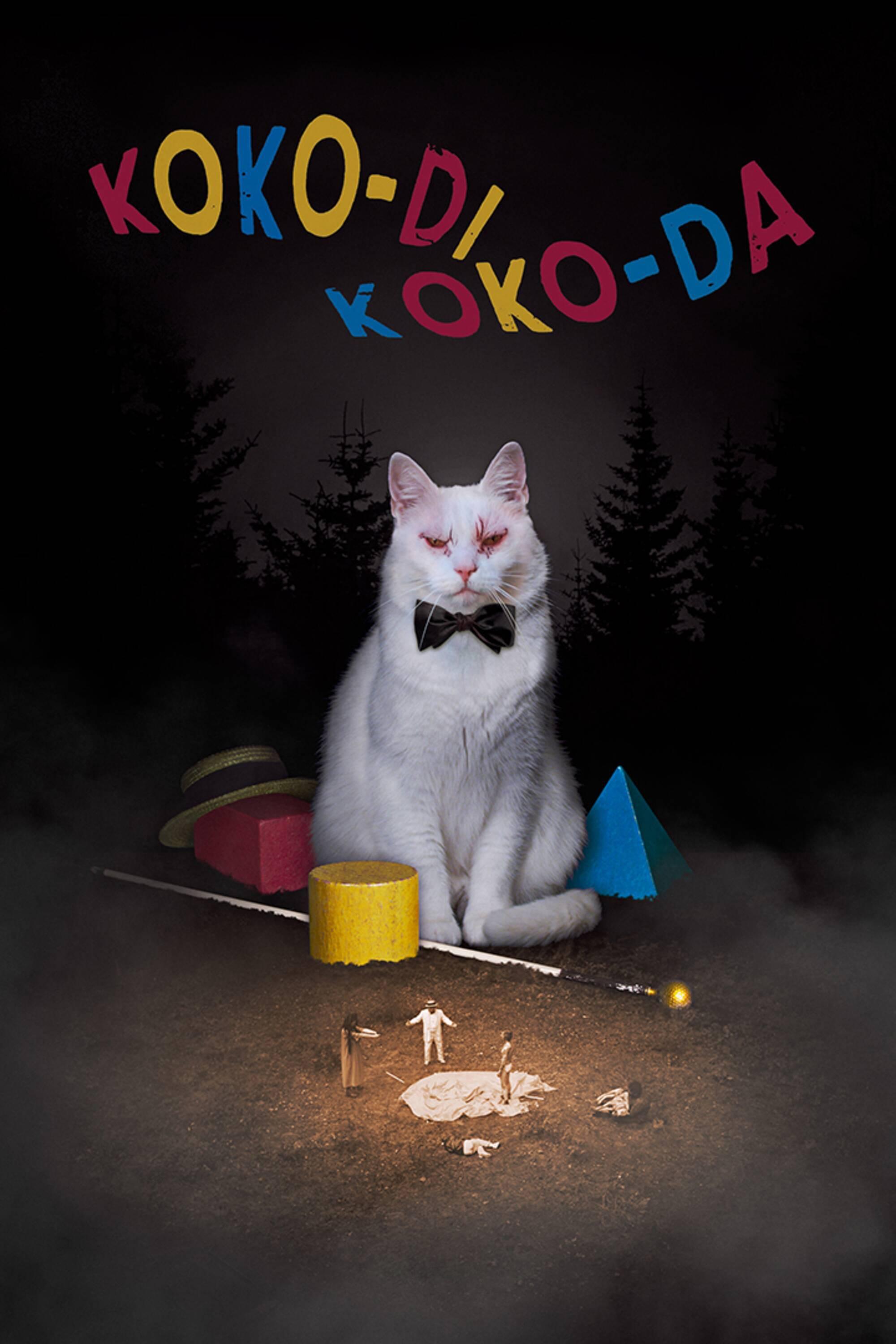 Koko-di Koko-da2019-08-23As a couple goes on a trip to find their way back to each other, a sideshow artist and his shady entourage emerge from the woods, terrorizing them, luring them deeper into a maelstrom of psychological terror and humiliating slapstick.More...
Koko-di Koko-da2019-08-23As a couple goes on a trip to find their way back to each other, a sideshow artist and his shady entourage emerge from the woods, terrorizing them, luring them deeper into a maelstrom of psychological terror and humiliating slapstick.More... The Good Girls2019-03-22Sofía, a well-to-do socialite and her husband must wrestle with the impact of Mexico's 1982 economic crisis.More...
The Good Girls2019-03-22Sofía, a well-to-do socialite and her husband must wrestle with the impact of Mexico's 1982 economic crisis.More...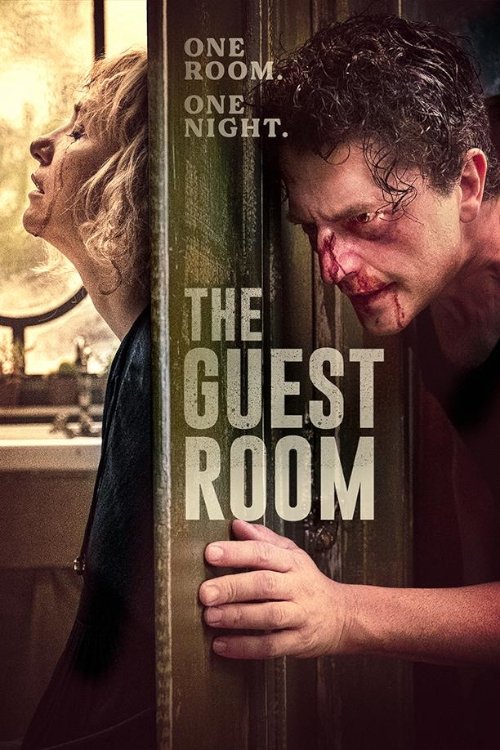 The Guest Room2021-01-04The morning Stella decides to take her own life, a stranger knocks at her door claiming the guest room he booked for the night. Surprised but charmed by this man who seems to know her very well, Stella decides to let him in. But when Sandro, the man who broke Stella's heart, joins them at home, this odd situation turns immediately into chaos.More...
The Guest Room2021-01-04The morning Stella decides to take her own life, a stranger knocks at her door claiming the guest room he booked for the night. Surprised but charmed by this man who seems to know her very well, Stella decides to let him in. But when Sandro, the man who broke Stella's heart, joins them at home, this odd situation turns immediately into chaos.More... Shirkers2018-01-21In 1992, teenager Sandi Tan shot Singapore's first indie road movie with her enigmatic American mentor Georges – who then vanished with all the footage. Twenty years later, the 16mm film is recovered, sending Tan, now a novelist in Los Angeles, on a personal odyssey in search of Georges' vanishing footprints.More...
Shirkers2018-01-21In 1992, teenager Sandi Tan shot Singapore's first indie road movie with her enigmatic American mentor Georges – who then vanished with all the footage. Twenty years later, the 16mm film is recovered, sending Tan, now a novelist in Los Angeles, on a personal odyssey in search of Georges' vanishing footprints.More... Greed2019-09-07A retail billionaire's 60th birthday party is celebrated in an exclusive hotel on the Greek island of Mykonos.More...
Greed2019-09-07A retail billionaire's 60th birthday party is celebrated in an exclusive hotel on the Greek island of Mykonos.More... Why Don't You Just Die!2018-08-13Andrey, a detective and the world's most horrible father, brings together a terrible group of people in his apartment: his resentful actress daughter, an angry thug, and a cheated cop. Each one of them has a reason to want revenge..More...
Why Don't You Just Die!2018-08-13Andrey, a detective and the world's most horrible father, brings together a terrible group of people in his apartment: his resentful actress daughter, an angry thug, and a cheated cop. Each one of them has a reason to want revenge..More... I'm Your Woman2020-10-15A woman is forced to go on the run after her husband betrays his partners, sending her and her baby on a dangerous journey.More...
I'm Your Woman2020-10-15A woman is forced to go on the run after her husband betrays his partners, sending her and her baby on a dangerous journey.More... Staten Island Summer2015-06-30Pals Danny and Frank spend the summer after high school working as lifeguards while figuring out their future.More...
Staten Island Summer2015-06-30Pals Danny and Frank spend the summer after high school working as lifeguards while figuring out their future.More...
Similar Movies
Strange Days
 1995-10-13Former policeman Lenny Nero has moved into a more lucrative trade: the illegal sale of virtual reality-like recordings that allow users to experience the emotions and past experiences of others. While they typically contain tawdry incidents, Nero is shocked when he receives one showing a murder.
1995-10-13Former policeman Lenny Nero has moved into a more lucrative trade: the illegal sale of virtual reality-like recordings that allow users to experience the emotions and past experiences of others. While they typically contain tawdry incidents, Nero is shocked when he receives one showing a murder.Desert Hearts
 1985-10-01While waiting for her divorce papers, a repressed literature professor finds herself unexpectedly attracted by a carefree, spirited young woman named Cay.
1985-10-01While waiting for her divorce papers, a repressed literature professor finds herself unexpectedly attracted by a carefree, spirited young woman named Cay.Beyond Silence
 1996-12-18Beyond Silence is about a family and a young girl’s coming of age story. This German film looks into the lives of the deaf and at a story about the love for music. A girl who has always had to translate speech into sign language for her deaf parents yet when her love for playing music grows strong she must decide to continue doing something she cannot share with her parents.
1996-12-18Beyond Silence is about a family and a young girl’s coming of age story. This German film looks into the lives of the deaf and at a story about the love for music. A girl who has always had to translate speech into sign language for her deaf parents yet when her love for playing music grows strong she must decide to continue doing something she cannot share with her parents.Grbavica: The Land of...
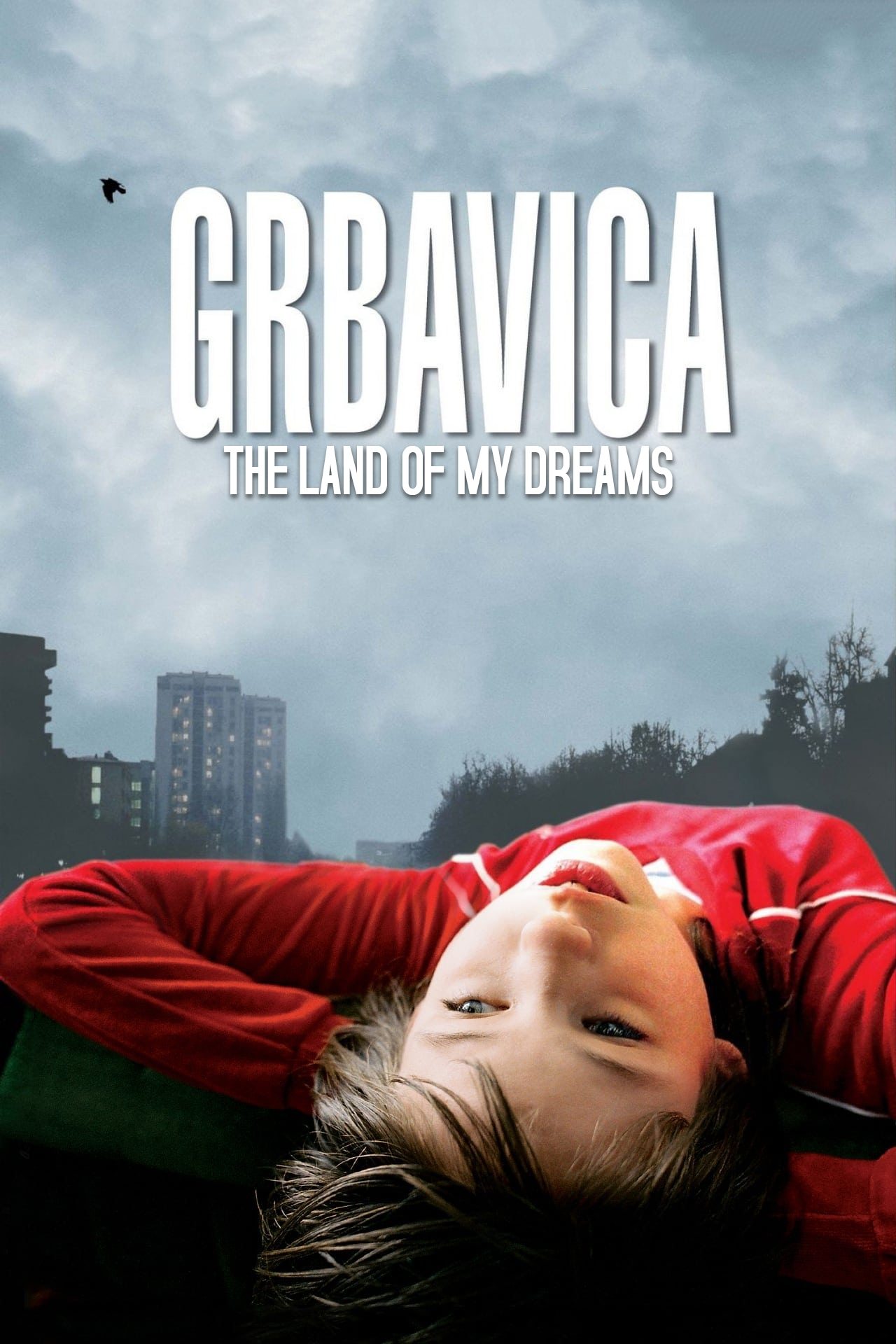 2006-03-01A woman and her daughter struggle to make their way through the aftermath of the Balkan war.
2006-03-01A woman and her daughter struggle to make their way through the aftermath of the Balkan war.Bollywood/Hollywood
 2002-10-25Rahul Seth is a dashing young millionaire who believes he is "western" enough to rebel against his mother and grandmother. They are not too keen about his Caucasian girlfriend Kimberly who, to make matters worse, is a pop star. Before you can say "karmic intervention," Kimberly dies in a freak accident and Rahul is devastated. Instead of allowing him to mourn in peace, Rahul's mother sees the opportunity she's been waiting for. She threatens to call off his sister's wedding unless he finds himself a "nice Indian girl." Rahul enlists the services of Sue, a fiercely independent escort whom he believes to be Hispanic, and therefore not "married" to the conventions taught to young Indian women. With a wink in her eye, Sue accepts the deal to pose as his Indian bride-to-be. She needs the money and having never been a fan of the typical Indian male, she feels her heart is safe. The charade begins....
2002-10-25Rahul Seth is a dashing young millionaire who believes he is "western" enough to rebel against his mother and grandmother. They are not too keen about his Caucasian girlfriend Kimberly who, to make matters worse, is a pop star. Before you can say "karmic intervention," Kimberly dies in a freak accident and Rahul is devastated. Instead of allowing him to mourn in peace, Rahul's mother sees the opportunity she's been waiting for. She threatens to call off his sister's wedding unless he finds himself a "nice Indian girl." Rahul enlists the services of Sue, a fiercely independent escort whom he believes to be Hispanic, and therefore not "married" to the conventions taught to young Indian women. With a wink in her eye, Sue accepts the deal to pose as his Indian bride-to-be. She needs the money and having never been a fan of the typical Indian male, she feels her heart is safe. The charade begins....Longing
 2006-02-15An average, everyday metalworker and volunteer firefighter content in his marriage to his childhood sweetheart finds his emotions unexpectedly stirred when he falls for a pretty waitress from a nearby town.
2006-02-15An average, everyday metalworker and volunteer firefighter content in his marriage to his childhood sweetheart finds his emotions unexpectedly stirred when he falls for a pretty waitress from a nearby town.Tam idan hatmimut
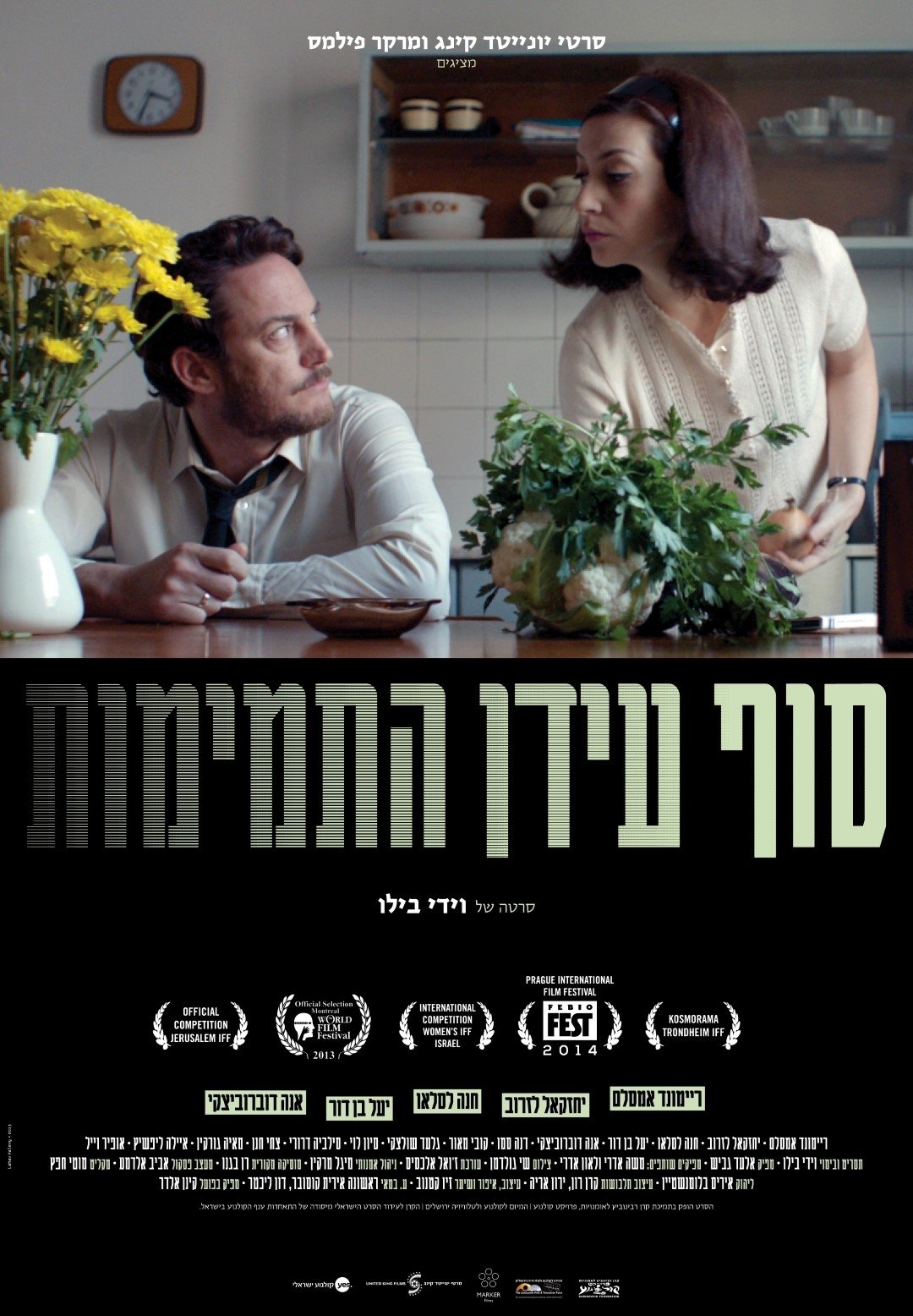 2013-07-10Ruth, a housewife in a suburb of Jerusalem, divided into two parts, appears as pliable as Play-Doh. While she should be taking care of her ten-year-old daughter and the household, her routine is falling apart and she is falling further into depression. Israel is just before the outbreak of the Six-Day War in 1967. The historical events echo in the lives of the characters only from a great distance. The female characters within the family wage a more important battle for their own identity. The director intentionally chose the parallel stories of three female protagonists: ten-year-old Michal who is just starting to acknowledge her sexuality, a single university student and Ruth, a trapped housewife.
2013-07-10Ruth, a housewife in a suburb of Jerusalem, divided into two parts, appears as pliable as Play-Doh. While she should be taking care of her ten-year-old daughter and the household, her routine is falling apart and she is falling further into depression. Israel is just before the outbreak of the Six-Day War in 1967. The historical events echo in the lives of the characters only from a great distance. The female characters within the family wage a more important battle for their own identity. The director intentionally chose the parallel stories of three female protagonists: ten-year-old Michal who is just starting to acknowledge her sexuality, a single university student and Ruth, a trapped housewife.Fat Girl
 2001-03-07Anaïs is twelve and bears the weight of the world on her shoulders. She watches her older sister, Elena, whom she both loves and hates. Elena is fifteen and devilishly beautiful. Neither more futile, nor more stupid than her younger sister, she cannot understand that she is merely an object of desire. And, as such, she can only be taken. Or had. Indeed, this is the subject: a girl's loss of virginity. And, that summer, it opens a door to tragedy.
2001-03-07Anaïs is twelve and bears the weight of the world on her shoulders. She watches her older sister, Elena, whom she both loves and hates. Elena is fifteen and devilishly beautiful. Neither more futile, nor more stupid than her younger sister, she cannot understand that she is merely an object of desire. And, as such, she can only be taken. Or had. Indeed, this is the subject: a girl's loss of virginity. And, that summer, it opens a door to tragedy.Bridget Jones's Diary...
 2001-04-13Bridget Jones is an average woman struggling against her age, her weight, her job, her lack of a man, and her various imperfections. As a New Year's resolution, Bridget decides to take control of her life, starting by keeping a diary in which she will always tell the complete truth. The fireworks begin when her charming though disreputable boss takes an interest in the quirky Miss Jones. Thrown into the mix are Bridget's band of slightly eccentric friends and a rather disagreeable acquaintance into whom Bridget cannot seem to stop running or help finding quietly attractive.
2001-04-13Bridget Jones is an average woman struggling against her age, her weight, her job, her lack of a man, and her various imperfections. As a New Year's resolution, Bridget decides to take control of her life, starting by keeping a diary in which she will always tell the complete truth. The fireworks begin when her charming though disreputable boss takes an interest in the quirky Miss Jones. Thrown into the mix are Bridget's band of slightly eccentric friends and a rather disagreeable acquaintance into whom Bridget cannot seem to stop running or help finding quietly attractive.The Piano
 1993-05-18When an arranged marriage brings Ada and her spirited daughter to the wilderness of nineteenth-century New Zealand, she finds herself locked in a battle of wills with both her controlling husband and a rugged frontiersman to whom she develops a forbidden attraction.
1993-05-18When an arranged marriage brings Ada and her spirited daughter to the wilderness of nineteenth-century New Zealand, she finds herself locked in a battle of wills with both her controlling husband and a rugged frontiersman to whom she develops a forbidden attraction.Little Miss Sunshine
 2006-07-26A family loaded with quirky, colorful characters piles into an old van and road trips to California for little Olive to compete in a beauty pageant.
2006-07-26A family loaded with quirky, colorful characters piles into an old van and road trips to California for little Olive to compete in a beauty pageant.Marie Antoinette
 2006-05-24The retelling of France’s iconic but ill-fated queen, Marie Antoinette - from her betrothal and marriage to Louis XVI at fifteen to her reign as queen at nineteen and ultimately the fall of Versailles.
2006-05-24The retelling of France’s iconic but ill-fated queen, Marie Antoinette - from her betrothal and marriage to Louis XVI at fifteen to her reign as queen at nineteen and ultimately the fall of Versailles.Children of a Lesser ...
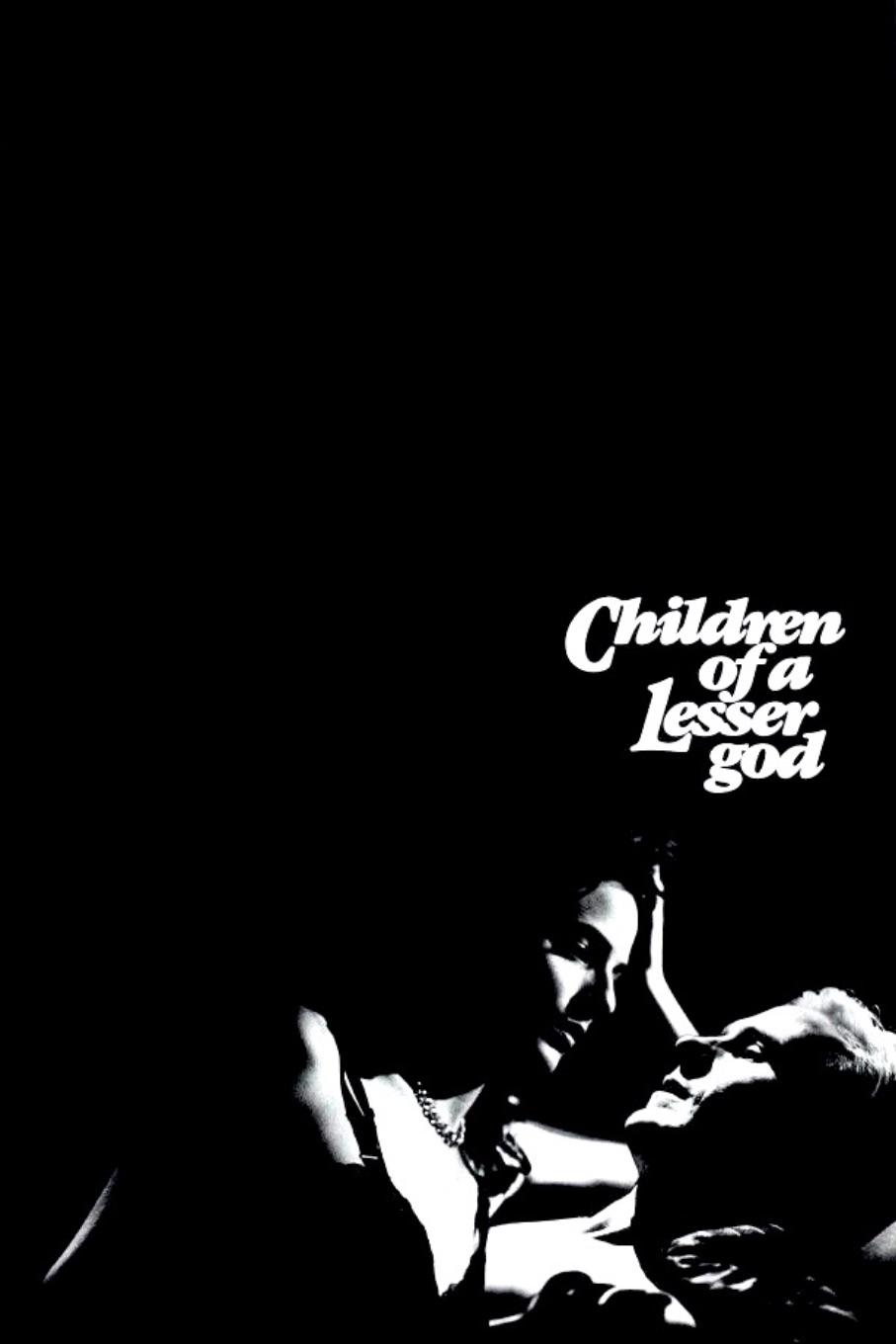 1986-09-13Starting his new job as an instructor at a New England school for the deaf, James Leeds meets Sarah Norman, a young deaf woman who works at the school as a member of the custodial staff. In spite of Sarah's withdrawn emotional state, a romance slowly develops between the pair.
1986-09-13Starting his new job as an instructor at a New England school for the deaf, James Leeds meets Sarah Norman, a young deaf woman who works at the school as a member of the custodial staff. In spite of Sarah's withdrawn emotional state, a romance slowly develops between the pair.Or (My Treasure)
 2004-09-09Or shoulders a lot: she's 17 or 18, a student, works evenings at a restaurant, recycles cans and bottles for cash, and tries to keep her mother Ruthie from returning to streetwalking in Tel Aviv. Ruthie calls Or "my treasure," but Ruthie is a burden. She's just out of hospital, weak, and Or has found her a job as a house cleaner. The call of the quick money on the street is tough for Ruthie to ignore. Or's emotions roil further when the mother of the youth she's in love with comes to the flat to warn her off. With love fading and Ruthie perhaps beyond help, Or's choices narrow.
2004-09-09Or shoulders a lot: she's 17 or 18, a student, works evenings at a restaurant, recycles cans and bottles for cash, and tries to keep her mother Ruthie from returning to streetwalking in Tel Aviv. Ruthie calls Or "my treasure," but Ruthie is a burden. She's just out of hospital, weak, and Or has found her a job as a house cleaner. The call of the quick money on the street is tough for Ruthie to ignore. Or's emotions roil further when the mother of the youth she's in love with comes to the flat to warn her off. With love fading and Ruthie perhaps beyond help, Or's choices narrow.Away from Her
 2007-05-04Fiona and Grant have been married for nearly 50 years. They have to face the fact that Fiona’s absent-mindedness is a symptom of Alzheimer’s disease. She must go to a specialized nursing home, where she slowly forgets Grant and turns her affection to Aubrey, another patient in the home.
2007-05-04Fiona and Grant have been married for nearly 50 years. They have to face the fact that Fiona’s absent-mindedness is a symptom of Alzheimer’s disease. She must go to a specialized nursing home, where she slowly forgets Grant and turns her affection to Aubrey, another patient in the home.September 11
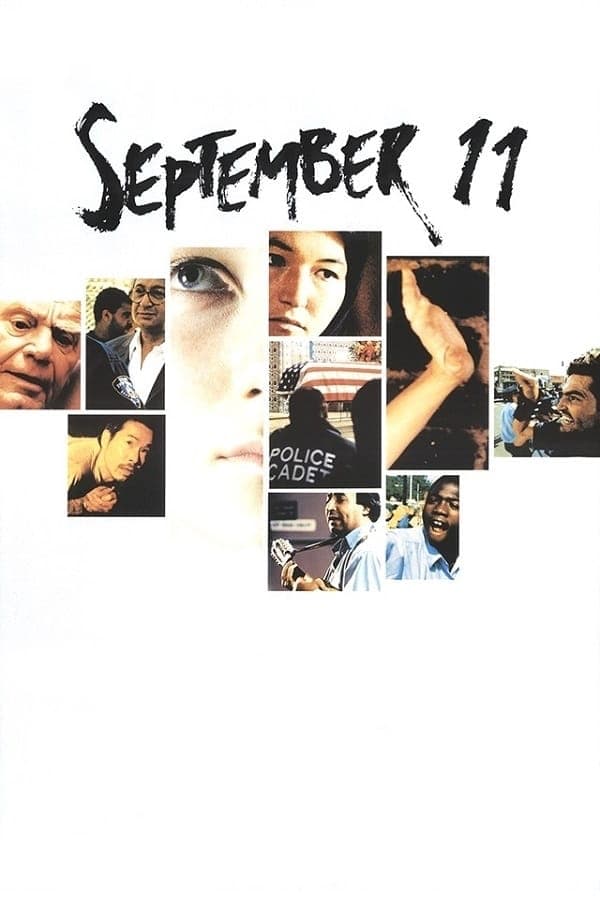 2002-09-04An anthology of short films inspired by the events of the September 11 World Trade Center attacks.
2002-09-04An anthology of short films inspired by the events of the September 11 World Trade Center attacks.The Amazing Spider-Ma...
 2012-06-23Peter Parker is an outcast high schooler abandoned by his parents as a boy, leaving him to be raised by his Uncle Ben and Aunt May. Like most teenagers, Peter is trying to figure out who he is and how he got to be the person he is today. As Peter discovers a mysterious briefcase that belonged to his father, he begins a quest to understand his parents' disappearance – leading him directly to Oscorp and the lab of Dr. Curt Connors, his father's former partner. As Spider-Man is set on a collision course with Connors' alter ego, The Lizard, Peter will make life-altering choices to use his powers and shape his destiny to become a hero.
2012-06-23Peter Parker is an outcast high schooler abandoned by his parents as a boy, leaving him to be raised by his Uncle Ben and Aunt May. Like most teenagers, Peter is trying to figure out who he is and how he got to be the person he is today. As Peter discovers a mysterious briefcase that belonged to his father, he begins a quest to understand his parents' disappearance – leading him directly to Oscorp and the lab of Dr. Curt Connors, his father's former partner. As Spider-Man is set on a collision course with Connors' alter ego, The Lizard, Peter will make life-altering choices to use his powers and shape his destiny to become a hero.Me and My Sister
 2004-11-21Louise, who has just written a novel, comes to Paris to meet with a potential publisher. While in the city, she stays with her older sister, Martine, who in many ways is the exact opposite of Louise: she lives in a fashionable neighborhood, is cold to others, and has snobby friends, while Louise lives in a small town and is thoroughly unpretentious. Louise's apparent happiness -- and similarities to their mother -- gradually gets on Martine's nerves.
2004-11-21Louise, who has just written a novel, comes to Paris to meet with a potential publisher. While in the city, she stays with her older sister, Martine, who in many ways is the exact opposite of Louise: she lives in a fashionable neighborhood, is cold to others, and has snobby friends, while Louise lives in a small town and is thoroughly unpretentious. Louise's apparent happiness -- and similarities to their mother -- gradually gets on Martine's nerves.Winner
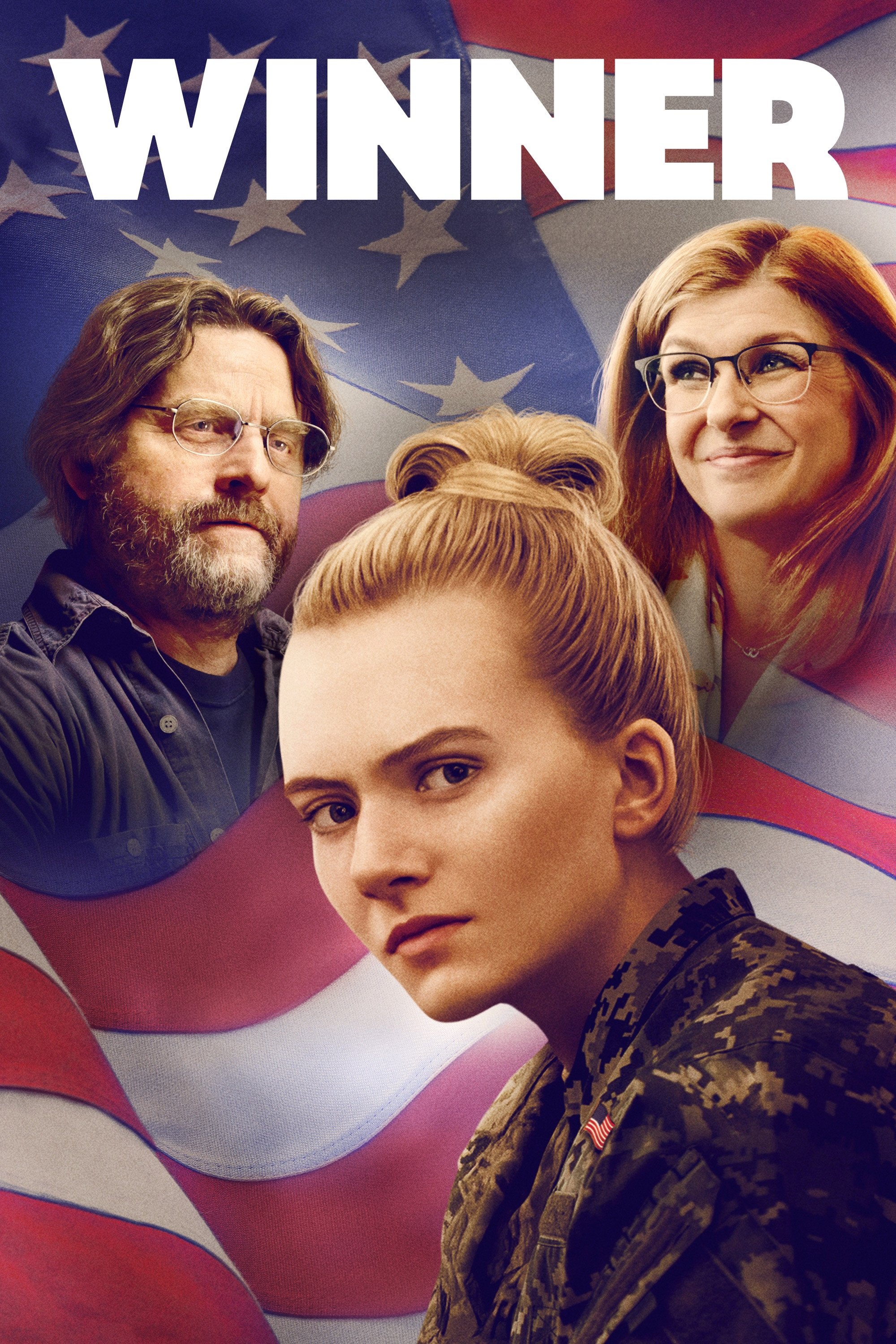 2024-09-13Winner is a brilliant young misfit from Texas who finds her morals challenged while serving in the U.S. Air Force and working as an NSA contractor. A fresh take on the traditional whistleblower thriller, the coming-of-age story follows an idealistic young woman persecuted for standing by her principles.
2024-09-13Winner is a brilliant young misfit from Texas who finds her morals challenged while serving in the U.S. Air Force and working as an NSA contractor. A fresh take on the traditional whistleblower thriller, the coming-of-age story follows an idealistic young woman persecuted for standing by her principles.Liberty Stands Still
 2002-01-18As the heir and current marketing director for one of the nation's biggest gun manufacturers, Liberty Wallace is indifferent to the atrocities made possible through her business and her CEO husband, Victor. On her way to see her actor lover, Liberty ends up chained to a food cart full of explosives -- all at the insistence of "Joe", a sniper whose young daughter was a victim of gun violence, and who now has Liberty in his sights.
2002-01-18As the heir and current marketing director for one of the nation's biggest gun manufacturers, Liberty Wallace is indifferent to the atrocities made possible through her business and her CEO husband, Victor. On her way to see her actor lover, Liberty ends up chained to a food cart full of explosives -- all at the insistence of "Joe", a sniper whose young daughter was a victim of gun violence, and who now has Liberty in his sights.
